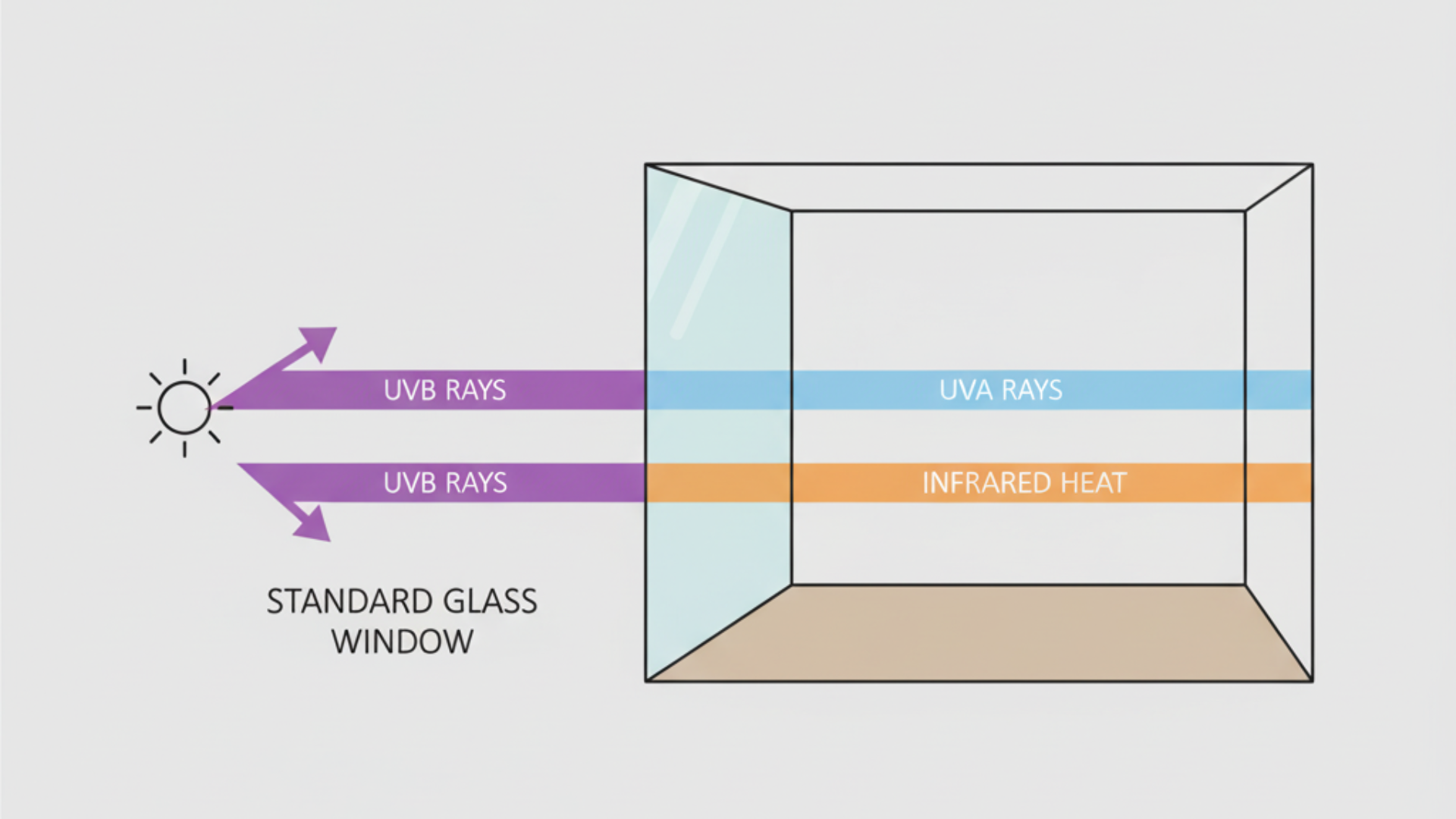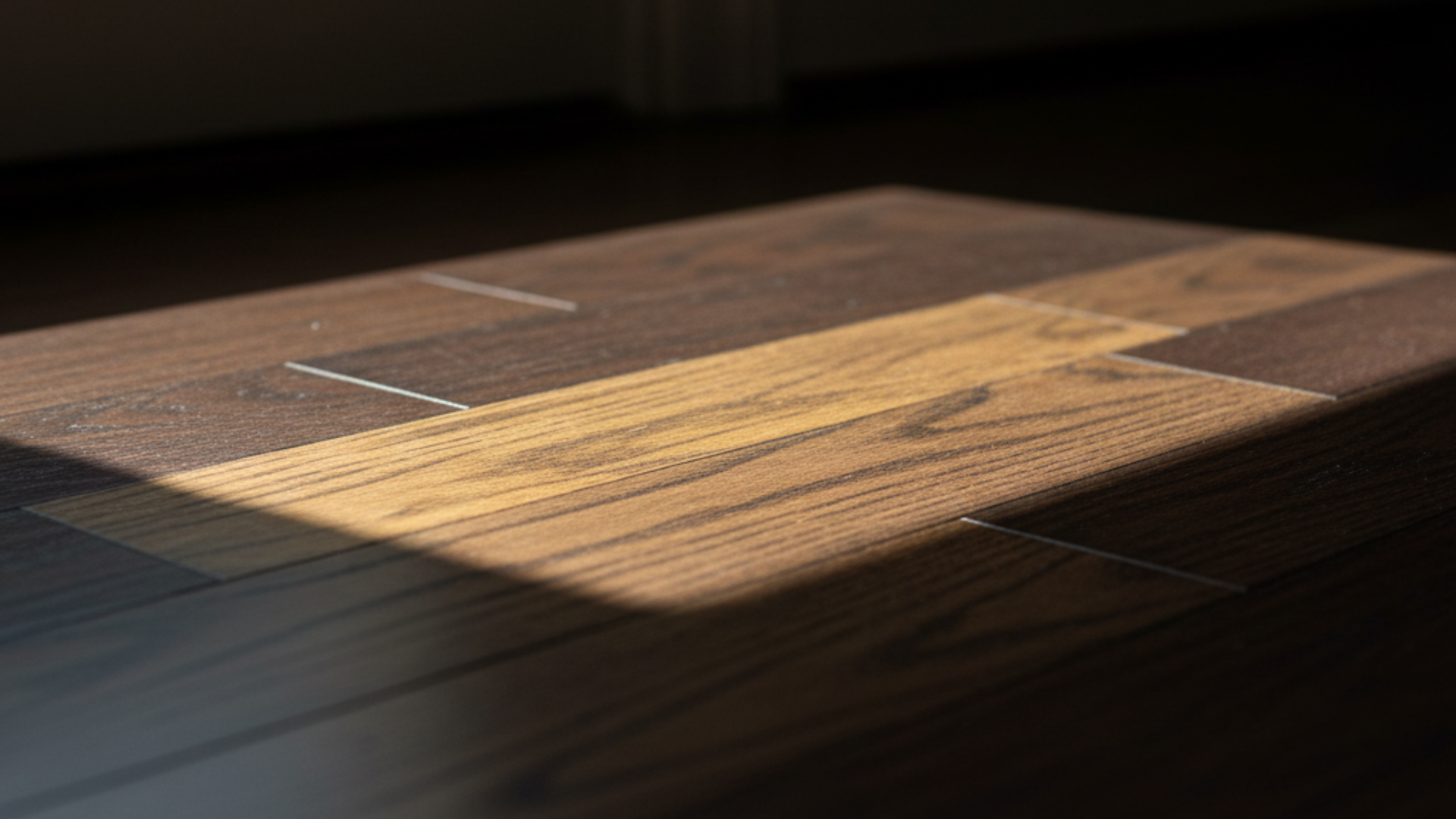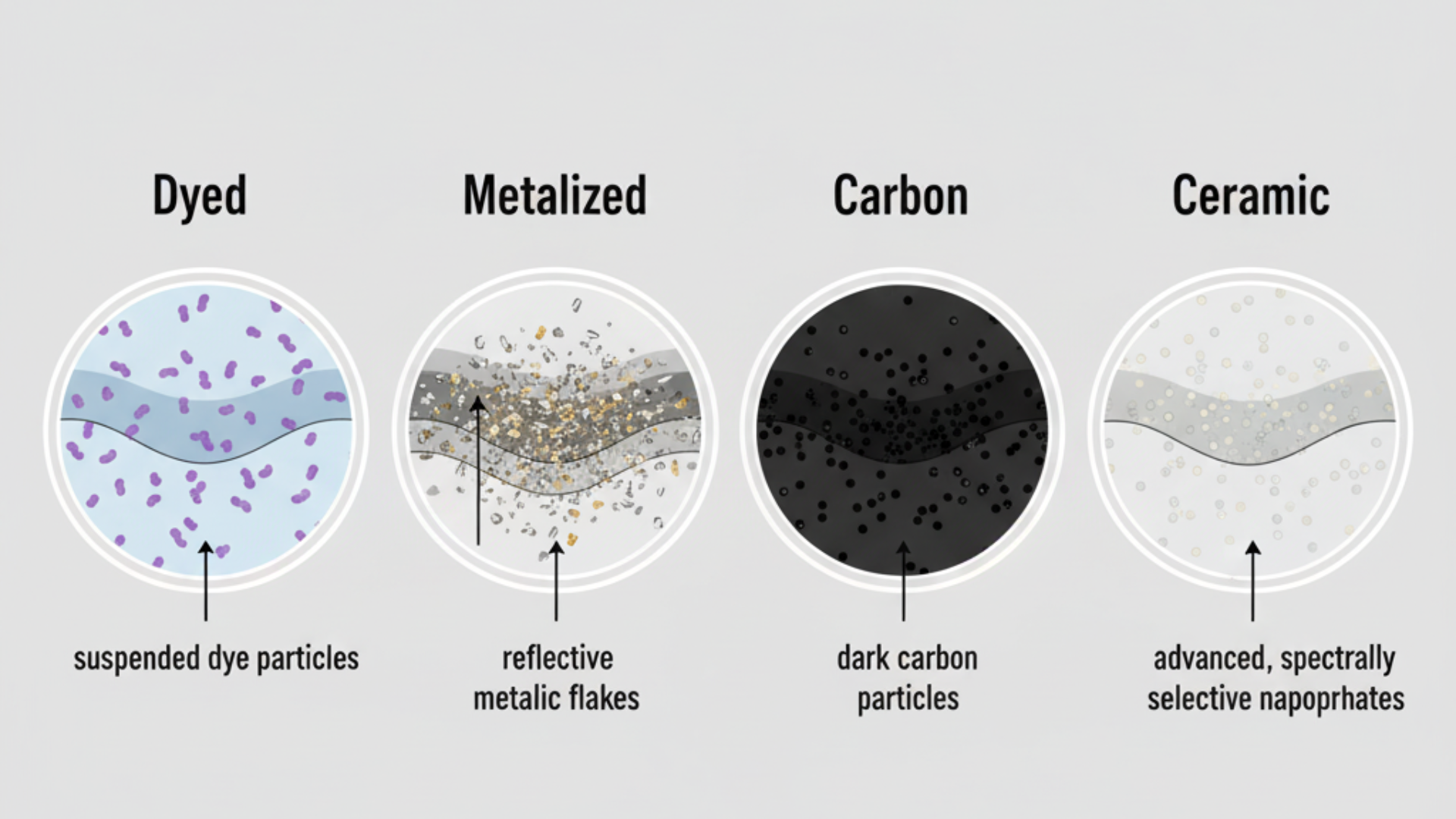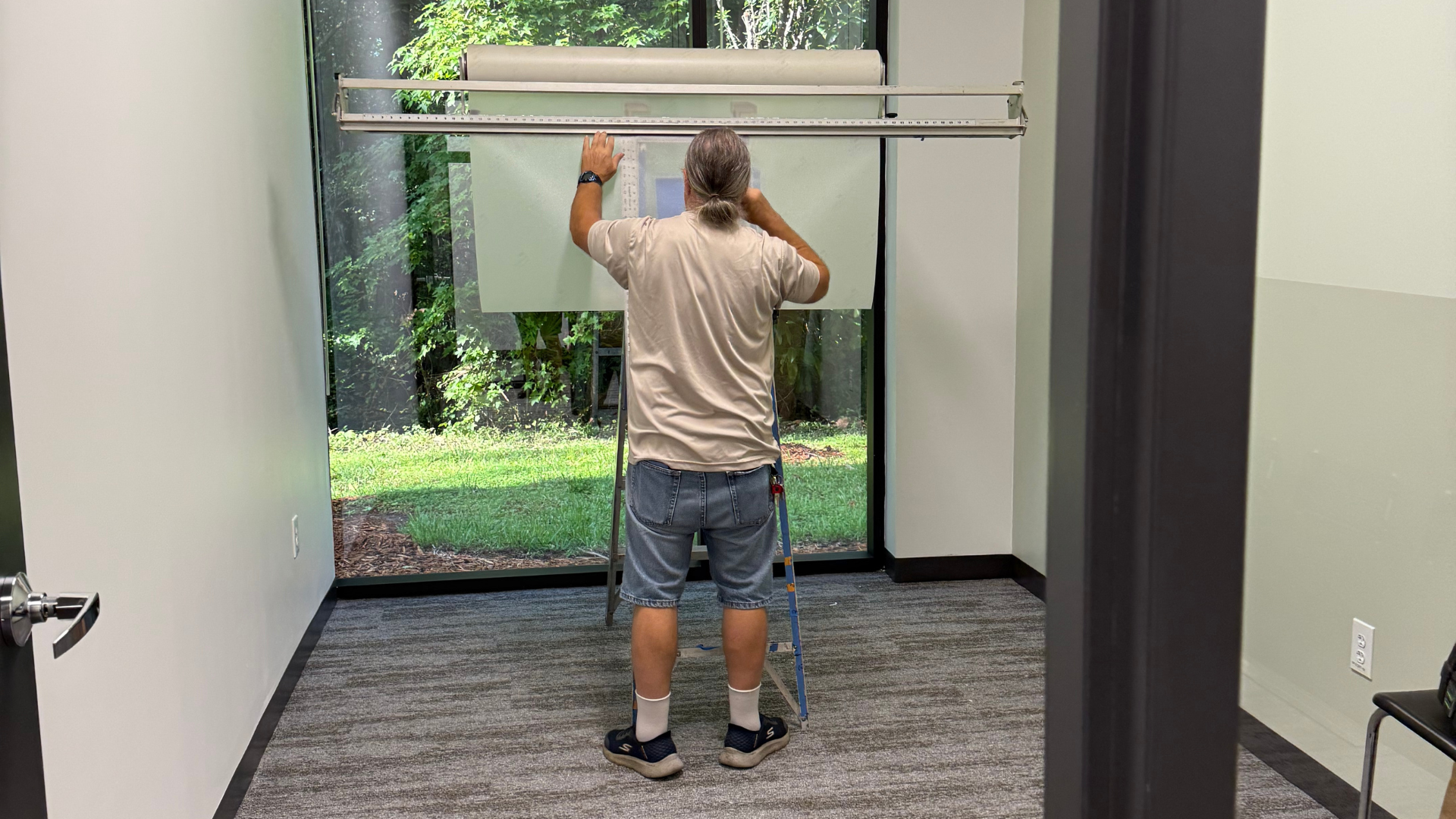Living in Jacksonville means embracing the sunshine. With over 220 sunny days a year, we enjoy a lifestyle that many can only dream of. But as residents of the Sunshine State, we also understand that this constant sun exposure comes with its own unique set of challenges. The intense solar radiation doesn’t just heat our homes and offices; it poses a significant risk to our health, fades our valuable furnishings, and drives up our energy bills. Standard windows, unfortunately, offer very little defense.
This is where modern sun control solutions become not just a luxury, but an essential investment. At All Spec Sun Control, we believe in empowering our clients with knowledge. This guide is designed to cut through the jargon and provide a clear, comprehensive understanding of UV blocking window film technology. We’ll explore why window tinting in Jacksonville is so critical, break down the different types of window films available, and help you make an informed decision to protect your property and enhance your comfort for years to come.
The Jacksonville Sun: Understanding the Full Spectrum of Risk
To appreciate the solution, we first need to understand the problem. The sunlight that brightens our days is a complex spectrum of energy. While we see the visible light and feel the infrared energy as heat, it’s the invisible ultraviolet (UV) radiation that causes the most long-term damage.

The Invisible Threat: UVA, the Silent Intruder
Many homeowners ask, do windows block UV rays? The answer is only partially. While standard glass blocks most burning UVB rays, it does almost nothing to stop the more prevalent aging UVA rays. These longer-wavelength rays make up 95% of the UV radiation that reaches us, and they pass right through untreated windows. This means that whether you’re at your desk, relaxing in your living room, or driving in your car, you are being exposed to the primary wavelength responsible for skin aging and, according to The Skin Cancer Foundation, a significant contributor to skin cancer. An effective UV protection window film is a crucial health consideration that many people overlook.

Beyond Health: Protecting Your Valuables from Sun Damage
Have you ever noticed how a favorite piece of furniture or a vibrant rug has lost its color over time? That process, known as photodegradation or fading, is a direct result of solar energy. The primary culprits attacking your interiors are:
- UV Radiation (~40%): The most energetic and aggressive part of the spectrum, UV rays chemically break down dyes in fabrics, woods, and artwork.
- Visible Light (~25%): Even the light that helps us see contributes significantly to the fading process.
- Solar Heat (Infrared) (~25%): Heat acts as a catalyst, accelerating the chemical reactions that cause fading.
Without a protective barrier, this constant assault diminishes the value and lifespan of your hardwood floors, furniture, and Decor. Investing in a quality window sun block film is the most effective way to prevent furniture fading and preserve your home’s interior.
Why Jacksonville’s Climate Demands a Superior Solution
The need for advanced sun control is amplified by Jacksonville’s specific climate. It’s not just the sheer number of sunny days; it’s a combination of factors:
- Intense Heat and Humidity: Our long, hot summers mean air conditioners are working overtime. Solar heat gain through windows is a leading cause of high energy consumption.
- High UV Index: Throughout the year, Jacksonville regularly experiences “High” to “Extreme” UV levels, intensifying the risk to both health and property.
- Coastal Salt Air: For anyone living near the coast or the St. Johns River, the humid, salt-laden air is a serious consideration. Salt is a corrosive agent that can degrade certain materials over time, making the right choice of UV film for windows absolutely critical.

Decoding Window Film: A Comparative Analysis of Technologies
Modern window film for UV protection is a marvel of materials science. It’s a multi-layered polyester product engineered to selectively filter sunlight. But not all UV window films are created equal. Understanding the core technologies is key to choosing the best window film for the demanding Jacksonville environment.
1. Dyed Window Film
How it Works:
This is the most basic and budget-friendly option. A layer of dye is added to the film to absorb solar energy, converting it into heat that then dissipates.
Pros:
Low upfront cost and effective glare reduction.
Cons:
Dyed film offers the lowest level of heat rejection. More importantly, under Jacksonville’s intense sun, the dyes will degrade over time, causing the film to fade, turn purple, and lose its effectiveness. It is a short-term solution at best.
2. Metalized Window Film
How it Works:
An incredibly thin layer of metal particles is embedded in the film to reflect solar energy away from the glass.
Pros:
Excellent heat rejection and durability against fading.
Cons:
This technology has two major flaws for our region. First, the metallic layer can interfere with cell phone signals, Wi-Fi, and GPS. Second, and most critically, metal oxidizes (corrodes) when exposed to salt and humidity. For coastal Jacksonville, this makes metalized film a high-risk choice prone to premature failure.
3. Carbon Window Film
How it Works:
Instead of dye or metal, this film uses microscopic carbon particles infused into the polyester. These particles are incredibly stable and effective at absorbing and dissipating heat.
Pros:
Carbon window film offers a significant upgrade in performance and durability over dyed film. It has good heat rejection, will never fade or change color, and contains no metal, so it won’t interfere with electronic signals or corrode in salt air. It provides a popular dark, matte finish.
Cons:
Its heat rejection, while good, is not as high as top-tier ceramic films.
4. Ceramic Window Film
How it Works:
This is the pinnacle of modern film technology. It uses non-metallic, non-conductive ceramic nanoparticles that are spectrally selective. This means they are engineered to target and block the specific wavelengths of light we don’t want—infrared (heat) and ultraviolet (UV)—while allowing maximum visible light to pass through.
Pros:
Ceramic window film provides the highest possible level of heat rejection and is a premier UV blocking window film, stopping over 99% of harmful rays without needing to be dark. It has zero signal interference and is completely immune to the corrosive effects of salt air, making it the most durable, long-lasting solution.
Cons:
It represents the highest upfront investment, but delivers the best long-term value and performance.
The Smart Choice for Jacksonville: A Clear Recommendation
Given our unique environmental stressors, the choice for Jacksonville property owners becomes clear. A long-term, high-performance solution requires a non-metallic UV film for windows.
For Maximum Performance and Longevity (The Premier Choice): Ceramic Window Film
For any property, but especially those in coastal areas, ceramic window film is the unequivocal best choice. Its complete immunity to salt-air corrosion, combined with the highest level of solar heat rejection, provides unparalleled protection, comfort, and energy savings. It’s the ideal technology to combat Jacksonville’s heat and humidity, ensuring your investment lasts for decades.
For Excellent Performance and Value (The High-Value Choice): Carbon Window Film
Carbon window film is an outstanding and highly recommended option for the Jacksonville area. It delivers many of the same crucial benefits as ceramic—no corrosion, no signal interference, and a very long lifespan—at a more moderate price point. It’s a durable, reliable, and cost-effective choice for both home window tinting and commercial applications.
Understanding the Numbers: Key Performance Metrics
When comparing different UV window films, you’ll see a spec sheet with several key metrics. Here’s what you need to know:
- UV Rejection (%): This should always be 99% or higher for any quality UV protection window film. This is the measure of its ability to block harmful ultraviolet rays.
- Visible Light Transmission (VLT %): This tells you how light or dark the film is. A lower number means a darker tint and more glare reduction.
- Total Solar Energy Rejected (TSER %): This is a key metric for comfort. It measures how much of the sun’s total energy (UV + visible light + heat) is blocked. A higher TSER means better performance.
- Solar Heat Gain Coefficient (SHGC): This is the most important number for those looking to reduce energy costs in a hot climate. It measures the fraction of solar heat that enters through the window. A lower SHGC is always better for Jacksonville, as it means less heat is getting in and your AC doesn’t have to work as hard.

Why Professional Installation is Non-Negotiable
The world’s best UV blocking window film will fail if not installed correctly. The performance and lifespan of your investment are just as dependent on the installer as they are on the film itself. This is especially true in Jacksonville’s humid climate.
The All Spec Sun Control Difference
A professional installation is a meticulous process. An experienced technician understands how to manage the extended curing (drying) times caused by our local humidity, preventing the bubbles and adhesive failure that plague poor installations. The process involves:
- Immaculate Surface Preparation: The glass must be surgically clean to ensure a perfect, contamination-free bond.
- Expert Application: Using the right techniques to ensure a smooth finish without creases or bubbles.
- Perfect Edge Sealing: Creating a flawless, micro-beveled edge that prevents peeling and lifting over time.
At All Spec Sun Control, our expertise in navigating Jacksonville’s unique climate ensures that your window film in Jacksonville, FL installation is done right the first time, guaranteeing the longevity and performance you expect.
Conclusion: An Essential Investment in Your Jacksonville Property
In a place defined by sunshine, managing its effects is essential. High-quality window film is one of the smartest upgrades you can make to your home, office, or vehicle. It’s a multi-purpose solution that offers powerful UV protection for your health, prevents the costly fading of your interiors, provides immediate comfort through superior heat rejection, and delivers tangible energy savings on your cooling bills.
For Jacksonville residents, the choice of a non-metallic film like carbon or ceramic is a strategic decision that ensures durability and performance in our coastal environment. By prioritizing a high-quality product and ensuring a professional installation, you are making a long-term investment in the value, comfort, and security of your property.
Ready to explore the best sun control in Jacksonville has to offer? Contact the experts at All Spec Sun Control today for a professional consultation and find the perfect solution for your needs.
FAQs
Q1: Will UV blocking window film make my home too dark?
Ans: That’s a very common concern, but the answer is no! Modern technology, especially with advanced ceramic films, has completely separated performance from appearance. We offer a wide range of UV film for windows, including options that are virtually clear. These optically clear films still block over 99% of harmful UV rays and a significant amount of solar heat without changing the look of your windows or sacrificing natural light.
Q2: How much does professional window tinting cost in Jacksonville?
Ans: The cost of a professional installation is an investment in your property and varies based on a few key factors: the specific type of film you choose (e.g., carbon vs. ceramic), the total square footage of glass being covered, and the complexity of the job (e.g., small French panes vs. large sliding glass doors). At All Spec Sun Control, we provide a free, no-obligation consultation where we measure your windows and discuss your specific goals to give you a precise and transparent quote.
Q3: How long will my window film last, and is it covered by a warranty?
Ans: When you invest in a high-quality, non-metallic film and have it professionally installed, you can expect it to last for 15-20 years or even longer. Durability is why we strongly recommend ceramic and carbon window films for Jacksonville’s coastal climate. All of our premium films are backed by a comprehensive manufacturer’s warranty that covers issues like bubbling, peeling, cracking, or discoloration, giving you complete peace of mind.
Q4: How do I clean my tinted windows?
Ans: Caring for your tinted windows is simple. After the initial 30-day curing period, you can clean them using a soft, clean microfiber cloth or a rubber squeegee. For the cleaning solution, a simple mixture of water with a few drops of mild dish soap is perfect. The most important thing to remember is to avoid ammonia-based cleaners (like Windex) and any abrasive scrubbing pads, as these can damage the film’s protective scratch-resistant coating over time.
Q5: How much can I really save on my energy bills?
Ans: Energy savings are one of the most significant benefits of installing a high-performance window sun block film. While the exact amount varies depending on factors like your home’s orientation, the efficiency of your AC system, and the film you select, the impact is real. By rejecting a large portion of solar heat, the film dramatically reduces the heat load on your home, meaning your air conditioner runs less often to maintain a comfortable temperature. For many Jacksonville homeowners, the reduction in cooling costs can be substantial, allowing the investment to pay for itself over the life of the film.

